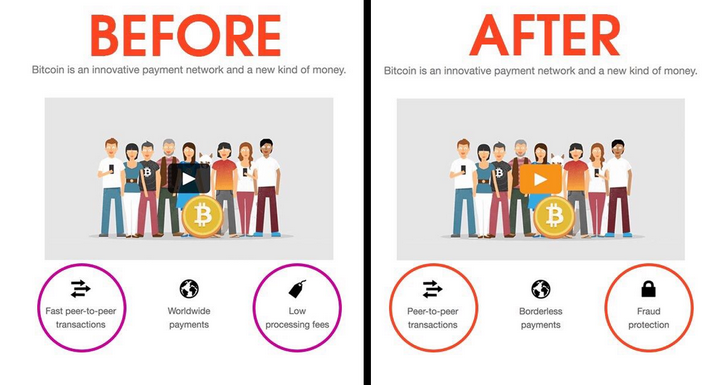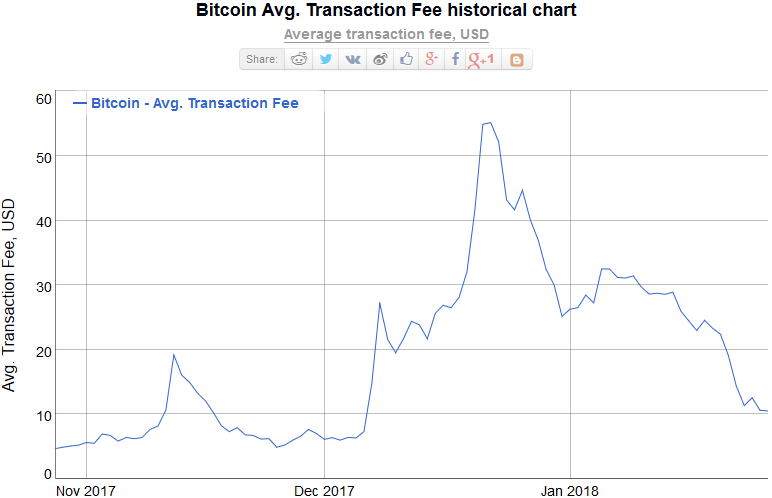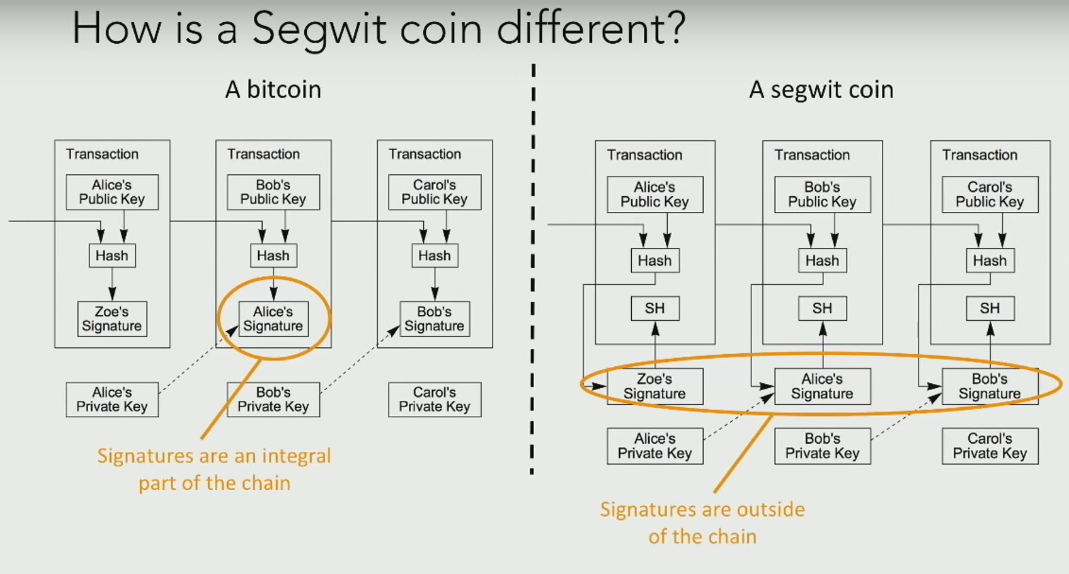The following opinion piece was written by Jonald Fyookball.
So you’ve heard of Bitcoin Cash — one of the top cryptocurrencies along with BTC and Ethereum. But why does it exist? Is it a cheap copy of Bitcoin? A pump-and-dump scheme? An attempt to hijack the brand and attack Bitcoin? In my estimation, the opposite is true. Bitcoin Cash is everything that Bitcoin was supposed to be, before it was taken over by a small group of radically minded “Core developers”, largely through propaganda and censorship.
Also read: Bitcoin Cash Supporters Prepare for the Network’s Next Six Month
Why Bitcoin Cash Was Born
Bitcoin Cash was born not out of greed, deceit, or opportunism, but rather from the passion of the community who wanted to see Bitcoin continue as peer-to-peer electronic cash.
The August 1st fork was (and still is) a divorce with heated emotions on both sides. Although I admit to having my own personal biases, I believe I can present you with 12 objective reasons to support the idea that Bitcoin Cash IS in fact, “the real Bitcoin”.
Reason #1: Bitcoin is Supposed to Have Low Fees
Bitcoin, from the early days, was touted as a low fee solution to global payments. It would have never gained any traction to begin with had it not been superior in this regard. Satoshi Nakamoto (Bitcoin’s creator) even said, “We should always allow at least some free transactions”.
This has been practically forgotten by the Bitcoin Core supporters. Case in point: The Bitcoin.org website was recently updated to reflect the abandonment of low fees:

At the time of this writing, BTC transaction fees are about $10, and have been recently as high as $50, according to bitinfocharts.com.

Bitcoin Core current transaction fees are high by design, as the Core developers intentionally did not allow any meaningful capacity increase — which in turn created a highly competitive “fee market”.
Although fee rates have declined since December, they have no choice but to rise again if more people want to transact.
By contrast, Bitcoin Cash transactions are accepted by miners at the rate of 1 sat/byte, which equates to a penny or less for most transactions.
Reason #2: Bitcoin Should be A Reliable Network
This is directly related to the high fee situation, which stems from the fatal decision to limit Bitcoin’s transaction capacity. Because transaction capacity is limited, you are unlikely to get your transaction included in the next Bitcoin block unless you pay a higher fee than everyone else who is waiting.
This makes the network unreliable and in some cases, unusable. Even if you pay a reasonably high fee, it is possible for your transaction to get stuck for hours or days as more and more users jump ahead of you with ever greater fees.
It used to be that if your transaction wasn’t included in a block in 72 hours, it would be dropped from the memory pool (“mempool”), and the funds would be sent back to your wallet. However, that waiting period was increased to 2 weeks. That’s right — your funds can be stuck in limbo for 2 weeks and you don’t even know if your transaction will go through.
This is the exact opposite of a reliable payment network.
Bitcoin Cash, on the other hand, has plenty of space in the blocks. It is reliable. It is the Bitcoin we all knew and loved.
Reason #3: Bitcoin is “A Peer to Peer Electronic Cash System”
If you read the Bitcoin Whitepaper, the title says it all: Bitcoin: A Peer to Peer Electronic Cash System.
When Bitcoin hit the scene, it was so exciting because any individual could send money to anyone on the planet…almost instantly, without high fees, and without permission from anyone.
It was all about Electronic Cash that was cheap, fast, and secure, and it was all about being able to make payments.
Since transaction fees on BTC have skyrocketed, its supporters have moved away from that narrative. They now say that Bitcoin is instead “digital gold”…and that its main use case is that of a “store of value”.
Not only have the original values of Bitcoin been abandoned and perverted, but this new party line doesn’t even make sense. If it’s “digital gold” only because people believe it and not because its useful, then how is that any better than a pyramid scheme?
Bitcoin Cash continues the P2P Electronic Cash system that is Bitcoin.
Reason #4: Bitcoin Was Intended to Scale “On-Chain”
In Satoshi Nakamoto’s very first email to the world, he unveiled the Bitcoin whitepaper. In his second email, he explained how the network could easily scale without any major changes or additions to the network design.
The current BTC blocksize of 1MB can be accurately described as a joke, because block sizes 1000 times bigger are being proven to work on a high end laptop.
Some researchers are even suggesting that terabyte blocks are feasible both technically and economically!
Sadly, for BTC, the Core developers never gave on-chain scaling a chance, and took an extremist position against permitting this. Instead, they fear-mongered with the boogeyman of “centralization”.
One of the most obvious lies has been that most users need to run their own full nodes. This is false in both theory and in practice. They claim that bigger blocks make it harder to run validating nodes, but this is not what makes Bitcoin secure, and it not what makes Bitcoin decentralized.
Only mining nodes secure the Bitcoin network. Most users can run an SPV wallet like Electrum and they will be just fine.
So, instead of allowing scaling to happen on the blockchain itself, the Core team wants to add so-called “second layer solutions” like the Lightning Network.
However, this is an extreme change to Bitcoin’s design. These layers not only add orders of magnitude of complexity, but they also radically change Bitcoin’s security model and economics, which was always based on mining.
Bitcoin Cash stays true to the original design and forges ahead with simple, robust capacity increases combined with sensible efficiency optimizations.
Reason #5: Bitcoin Should Allow Instant Transactions
A transaction is confirmed once a miner includes it in a block. Transactions not yet included in a block are unconfirmed but are expected to be included in a block soon. The practice of merchants accepting a transaction as valid, even before it is confirmed is known as “0-conf”.
Historically, this has been relatively safe for small to medium sized transactions. However, with a congested network and uncertainty over when (if ever) your transaction will be confirmed, the security and reliability of 0-conf is destroyed.
Worse, Bitcoin Core has introduced a feature called replace-by-fee (RBF). It attempts to fix some of the problems of high fees by allowing users to replace their transaction using a bigger fee. However, it makes double-spending very easy, which essentially kills 0-conf transactions.
Although RBF is an optional setting, merchants would have to upgrade their software to specifically prohibit RBF in order to accept 0-conf, and even then, there’s still the problems of backlogs and congestion.
Bitcoin Cash implementations do not use RBF, and the network is uncongested, making 0-conf possible again.
Reason #6: Bitcoin Cash is Gaining Merchants, Bitcoin Core is Losing Them.
Bitcoin isn’t a get-rich-quick scheme. Although some people have done well investing in cryptocurrencies, the foundation is about creating a better form of money.
It’s all about growing the Bitcoin economy and that means getting a growing number of merchants to adopt the new payment system.
Because of the high fees and poor user experience, Bitcoin legacy (BTC) has been going backwards and losing merchants. Dell, Microsoft, and Steam are just three examples of prominent merchants that once accepted Bitcoin but stopped because small retail payments simply don’t make economic sense.
Meanwhile, Bitcoin Cash is quickly gaining ground and adding new merchants on a daily basis.
Reason #7: Bitcoin Was Meant to Bank the Unbanked
Bitcoin is a humanitarian project. It has the possibility to help the billions of people who don’t have access to modern banking. This potential was passionately espoused by evangelists like Andreas Antonopoulos… until Bitcoin’s high fees made that impossible.
People living in third-world countries often live on only a few dollars a day, and certainly can’t afford to pay a $10 fee. However, Bitcoin Cash makes “banking the unbanked” possible once again.
Reason #8: Bitcoin Core Development is Centralized
Decentralization is one of the main tenets of Bitcoin. It’s not just decentralization of merchants, users, and miners that’s important… Development should also be decentralized — there shouldn’t be one small group of people dictating how the network should operate.
Yet, that is exactly what has been happening in Bitcoin. A small group, known as the “Core” developers has wielded enormous influence because of their control over the reference code repository.
Although hundreds of individuals have contributed to the project, there is only a tiny handful of people (about 5) that have permission to merge code changes.
The notion that “anyone can contribute” is only true if you accept the reality that all changes must be in line with the approved roadmap or they will not be adopted.
This is unavoidable because ultimately, there needs to be a decision maker for each project. The way to decentralize development is not to have 400 contributors on a single code repository, but rather to have several competing implementations.
This is the approach of Bitcoin Cash.
Although Bitcoin ABC was the first Bitcoin Cash implementation, and is perhaps currently the most influential, there is also Bitcoin Unlimited, Bitcoin XT, Parity, and Bitprim… and each of those groups has considerable weight within the Bitcoin Cash community and with the miners, who ultimately make the decisions.
Reason #9: Bitcoin Cash Allows Combining and Splitting Value
Satoshi Nakamoto’s original whitepaper has stood the test of time and remains a brilliant encapsulation of the most important technical facets of Bitcoin.
An often overlooked part of the paper is section 9: Combining and Splitting Value. When you spend Bitcoin, you’re usually splitting off a part of an unspent output and sending change back to yourself. And when Bitcoin is received, it is combined if there was more than one output.
This is happening all the time, even though you might not give it much thought. Yet, high Bitcoin fees make combining unspent outputs very expensive. A $10 fee can turn into a $100 fee or worse.
So, the functionality is hampered. The privacy and fungibility of the coin is also compromised as users tiptoe around this problem by minimizing their transactions.
But… tiptoeing only goes so far. You may be shocked to discover that as much as 55% of all Bitcoin addresses in use are not even spendable, as they contain an amount smaller than the cost of combining those funds into a transaction.
Bitcoin Cash doesn’t have these problems, and it allows users to freely split and combine their coins.
Reason #10: Bitcoin Cash is Censorship Resistant
One of the big talking points from Bitcoin Core supporters is that the high fees are worth it because of how “censorship resistant” the Bitcoin blockchain is.
It may be worth it if you are transferring large amounts of capital and can afford to pay the high fees. But for the rest of the world, being priced out of using the blockchain is the quintessence of economic censorship.
A second layer solution, namely the Lightning Network, does not help much. It is inherently susceptible to economic censorship because the network structure will coalesce around large, heavily connected hubs.
Those hubs, as they grow larger, will come under increasing regulatory pressure as money transmitting businesses… and they cannot be effectively routed around for the same reasons that they exist to begin with.
Out of the two systems, only the original blockchain-based Bitcoin system, with low fees, is truly censorship resistant. That system is Bitcoin Cash.
Reason #11: A Bitcoin is Defined as a Chain of Digital Signatures
This is the most “technical” reason in this article, so don’t worry if you don’t fully understand it.
You see, Bitcoin Core adopted a proposal known as Segregated Witness, or ‘SegWit’ for short. SegWit took the digital signatures that were part of every transaction, and moved them to a separate (i.e. segregated) part of the blockchain.
In the Bitcoin whitepaper, Satoshi writes: “We define an electronic coin as a chain of digital signatures”. SegWit changes this.
The following diagram illustrates the difference. It comes from Dr. Peter Rizun’s 2017 speech entitled “A SegWit coin is not a Bitcoin”.

Dr. Rizun explains:
In a Bitcoin, the signatures are an integral part of the chain. Carol can only verify the complete chain of ownership if all the signatures exist because if even a single signature is missing, the chain breaks down…there’s no way to follow it through. A SegWit coin is different because the signatures are all outside of the chain. If even none of the signatures exist, or maybe none of the signatures were even real to begin with, Carol can still validate the chain of custody. I’m using the word custody instead of the chain of ownership, because SegWit really only shows custody.
Bitcoin Core supporters will rebut this by claiming that the structure is irrelevant, since miners will not accept blocks without valid signatures.
But this is not the whole story. It leads to a much deeper discussion, including the fact that miners no longer even need to download the signatures (since they are now separate from the transactions), which disincentivizes miners from verifying them.
Thus, the security incentives are dangerously shifted.
In theory, SegWit could ultimately lead to an unexpected chain split, a mining cartel attack, missing signature anomalies, lost funds, or censored transactions. It’s the most complex change ever introduced in Bitcoin, encompassing dozens of files and thousands of lines of code.
Even if you believe SegWit is a good idea, it is obvious this is a huge change from the original Bitcoin code and design. Bitcoin Cash rejects SegWit and intentionally forked off before SegWit activated, preserving the integrity of the Blockchain.
Reason #12: Bitcoin Cash Will Allow Smart Contracts
“Money is only the first application of this new technology”, quipped many a Bitcoin pundit during the early years of Bitcoin. But many of the Bitcoin Script operation codes (opcodes) that would have allowed smart contract development have been disabled.
That is why Vitalik Buterin left Bitcoin to create Ethereum. He was essentially told by the Core developers that his ideas and plans were not welcome in Bitcoin. And today, Ethereum dominates as a smart contract platform.
Bitcoin Cash is scheduled to re-introduce some of the lost functionality back to Bitcoin, enabling all kinds of exciting projects.
The Counter Argument
Ok, I’ve laid it on pretty thick for Bitcoin Cash.
However, there is one major argument for Bitcoin Core — it still has the majority of hashpower and the most accumulated proof of work.
It can’t be denied that this too, is a substantial indicator of being “The True Bitcoin”.
So, how is it possible to have a dozen solid reasons in favor of Bitcoin Cash, and yet it is still a minority chain?
The Winds of Change Take Time
Many people, even some industry veterans, do not really understand Bitcoin Cash. They don’t understand that the Bitcoin that existed years ago is now fundamentally different.
Bitcoin also retained the brand name, the ticker symbol, the first mover advantage, and a huge network effect. These things take time to overcome.
Whatever happens in the future, I am 100% confident that some form of Peer-to-Peer Electronic Cash will eventually rule, by whatever name it takes.
Written by Jonald Fyookball.
Do you agree that bitcoin cash is the real bitcoin, and if not, why not? Let us know in the comments section below.
Images courtesy of Shutterstock, and Bitcoin.org. This post was originally published on Medium.com.
This is an Op-ed article. The opinions expressed in this article are the author’s own. Bitcoin.com does not endorse nor support views, opinions or conclusions drawn in this post. Bitcoin.com is not responsible for or liable for any content, accuracy or quality within the Op-ed article. Readers should do their own due diligence before taking any actions related to the content. Bitcoin.com is not responsible, directly or indirectly, for any damage or loss caused or alleged to be caused by or in connection with the use of or reliance on any information in this Op-ed article.
The post 12 Reasons Bitcoin Cash is the Real Bitcoin appeared first on Bitcoin News.

Bitcoin.com is author of this content, TheBitcoinNews.com is is not responsible for the content of external sites.
Our Social Networks: Facebook Instagram Pinterest Reddit Telegram Twitter Youtube











